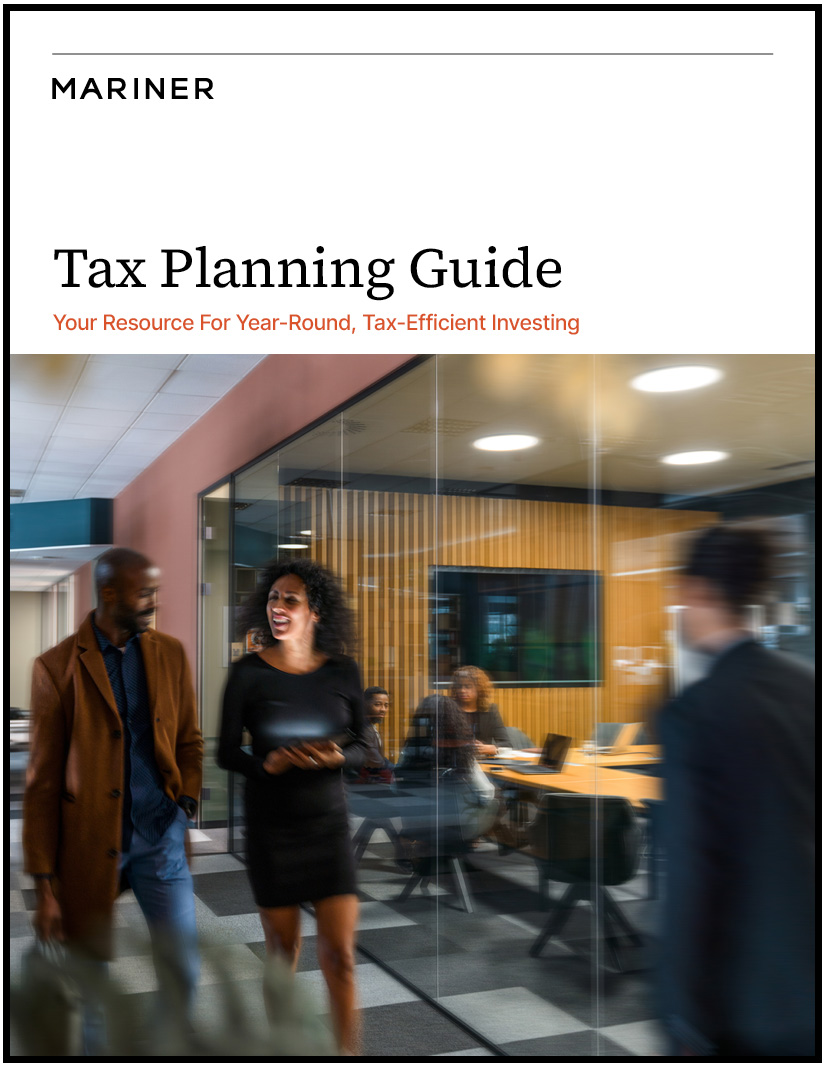Relocating to a Tax-Friendly State

If you’re retiring and thinking about relocating or have a job that allows you to live anywhere, it may be worth considering moving to a more tax-friendly state.
Potential Tax Advantages to Relocation
For example, many residents of Northeast states have moved to Florida due to its tax-friendly laws. Florida doesn’t have personal, estate or inheritance tax. In addition, the state limits property tax escalation by capping annual assessment increases to 3% of the previous year’s assessment or the Consumer Price Index (CPI). The state also has a homestead exemption of up to $50,000 that a property owner may be eligible to receive. The first $25,000 applies to all property taxes, including school district taxes. The additional exemption up to $25,000 applies to the assessed value between $50,000 and $75,000 and only to nonschool taxes.1 Compare this to top marginal individual income tax rates—as high as 10.75% in Washington, D.C.2—along with ever-increasing property taxes, and it is not difficult to see the long-term economic benefits of moving to a tax- advantaged state.
States With No State Income Tax
These states have no state income tax: Alaska, Florida, Nevada, South Dakota, Tennessee, Texas and Wyoming. Washington state has an income tax on investment income and capital gains for certain high earners.3 If you are a retiree, it means that in those states, you won’t pay state income tax on Social Security benefits, IRA and 401(k) withdrawals or pension payouts.
Establishing a Domicile
To gain potential state-related tax advantages, you first have to establish a domicile in your state of choice. You can’t simply declare your permanent home state—you must first establish your intent and document your domicile. What does that mean? Simply put, a domicile is your permanent place of dwelling. And for the purposes of jurisdiction, the term “domicile” is considered the place you intend to make your permanent home. It’s defined by a combination of your residence and your intent to remain there permanently.4
If a taxpayer has only one domicile and merely spends short periods away from home, his/her legal residence is the state where the home is located. However, taxpayers with two or more homes must provide facts to document their residency to tax authorities. It is important to note that it is not unlawful for two different states to successfully claim you as a resident for estate or inheritance tax purposes.
Therefore, it could be extremely expensive if your actions do not fully support your intent. In this instance, an incomplete attempt to change residency can be more costly than no attempt at all.
Actions Speak Louder Than Words
To help establish your intent to have a new primary domicile, it’s a good idea to spend at least 183 days—just over 50% per year—in the state. This may seem easy to comply with, but sometimes fact patterns jeopardize the results. For example, if your intent is to be a resident of Florida, but you have a second home in another state and spend a lot of time there, leaving for vacations from the other state may indicate an intent that the other state is your primary residence.
Other Important Actions Include:
There is no single set of facts to establish a domicile state. Instead, numerous actions taken together often support the taxpayer’s intent. Below is a list of just some steps you can take.
- File a nonresident tax return in your former state if required or file a final return in your former state upon leaving.
- Bank accounts, insurance policies, credit cards and other bills should have the mailing address of your primary domicile.
- Wills should be updated to reflect your primary domicile.
- All mail, including magazine subscriptions, should be addressed to your resident state. When not in your resident state, have mail forwarded by the post office rather than temporarily changing your mailing address.
- If you intend to spend substantial time in more than your resident state, maintain a diary noting the state you are in every day.
- If your new state has in-state benefits, file for them. For example, in Florida, you should file for homesteading with your local county to secure property tax benefits.
Please note, this list is not exhaustive. The general rule? To change your state of domicile, you should conduct all aspects of your life accordingly and keep documentation to show your intent.
Partner With Your Advisor
At Mariner, our goal is to assist you in every step of making this type of transition, from simple steps like changing account addresses to the more involved steps like homesteading a residence properly. We believe that an overall wealth management plan should integrate finances and taxes to help give you the most tax-advantaged strategy possible.
Tax Guide: Your Resource for Year-Round Tax-Efficient Investing
Year-round planning with an advisor could help improve your overall wealth plan. Find out more by downloading our tax guide.
Sources:
1“Florida Property Tax Exemption for Homestead Property”
2“State and Individual Income Tax Rates and Brackets for 2023”
4“Distinctions Between Domicile and Residence,” uslegal.com
This article is limited to the dissemination of general information pertaining to Mariner Wealth Advisors’ investment advisory services and general economic market conditions. The views expressed are for commentary purposes only and do not take into account any individual personal, financial, or tax considerations. As such, the information contained herein is not intended to be personal legal, investment or tax advice or a solicitation to buy or sell any security or engage in a particular investment strategy. Nothing herein should be relied upon as such, and there is no guarantee that any claims made will come to pass. Any opinions and forecasts contained herein are based on information and sources of information deemed to be reliable, but Mariner Wealth Advisors does not warrant the accuracy of the information that this opinion and forecast is based upon. You should note that the materials are provided “as is” without any express or implied warranties. Opinions expressed are subject to change without notice and are not intended as investment advice or to predict future performance. Past performance does not guarantee future results. Consult your financial professional before making any investment decision.
Mariner is the marketing name for the financial services businesses of Mariner Wealth Advisors, LLC and its subsidiaries. Investment advisory services are provided through the brands Mariner Wealth, Mariner Independent, Mariner Institutional, Mariner Ultra, and Mariner Workplace, each of which is a business name of the registered investment advisory entities of Mariner. For additional information about each of the registered investment advisory entities of Mariner, including fees and services, please contact Mariner or refer to each entity’s Form ADV Part 2A, which is available on the Investment Adviser Public Disclosure website. Registration of an investment adviser does not imply a certain level of skill or training.

